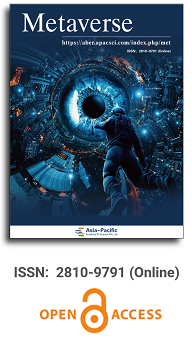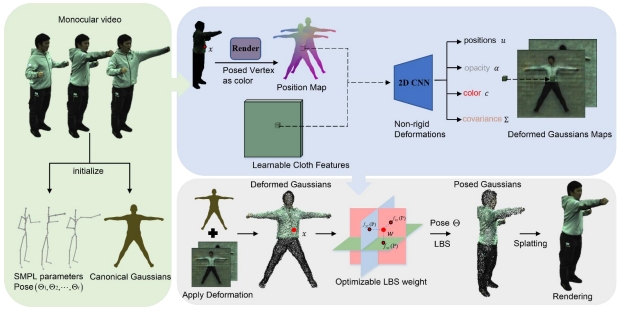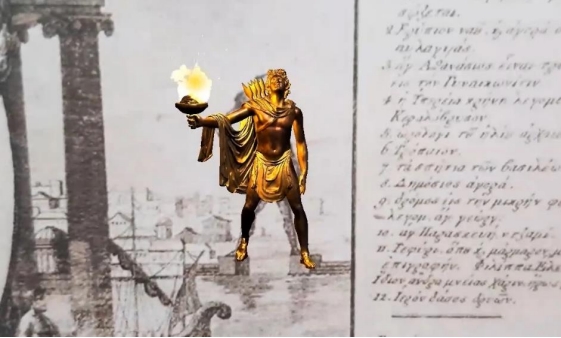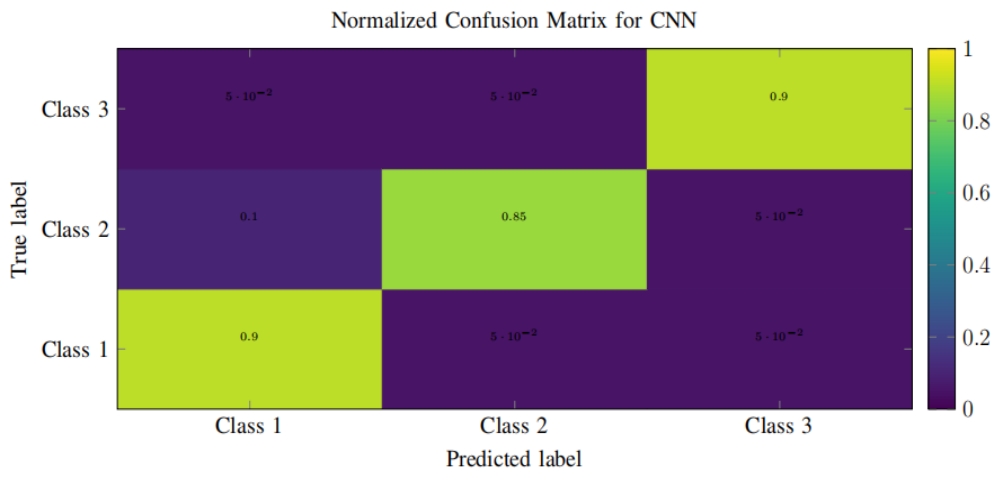
Asia Pacific Academy of Science Pte. Ltd. (APACSCI) specializes in international journal publishing. APACSCI adopts the open access publishing model and provides an important communication bridge for academic groups whose interest fields include engineering, technology, medicine, computer, mathematics, agriculture and forestry, and environment.



Metaverse in tourism service: Exploring digital tourism innovation
Vol 5, Issue 1, 2024
Download PDF
Abstract
This study explores the integration and challenges of metaverse technology in tourism, analyzing perspectives from the industry, travelers, and management. It underscores the digital transformation accelerated by the COVID-19 pandemic, technological advances, and Generation Z influences. The research identifies key applications of metaverse technology, such as digital eco-tours, museums, cultural performances, and souvenirs, which redefine the traditional tourism model. It also examines the unique experiences provided to tourists by the metaverse at various stages of travel—before, during, and after trips—and evaluates the implications for customer perception and behavior. From a management viewpoint, the study highlights the necessity for thorough assessments of metaverse implementations in customer relations, marketing, and organizational strategies to fully gauge its impact. The discussion section addresses the long-term effects on traditional tourism practices and destinations and articulates how these technologies transform customer engagement and operational paradigms. This research provides a comprehensive overview of how metaverse technology reshapes the tourism landscape, offering insights for future technological integration and strategic development.
Keywords
References
- Chen Z. Home Working Stress in the COVID-19 Crisis Era. Journal of Occupational & Environmental Medicine. 2022; 64(5): e273-e278. doi: 10.1097/jom.0000000000002499
- Chen Z. Sharing Employee: B2B Employment Model in the Era of Coronavirus Disease 2019 and Implication for Human Resource Management. Frontiers in Psychology. 2021; 12. doi: 10.3389/fpsyg.2021.714704
- Wen H, Leung XY. Virtual wine tours and wine tasting: The influence of offline and online embodiment integration on wine purchase decisions. Tourism Management. 2021; 83: 104250. doi: 10.1016/j.tourman.2020.104250
- Gutowski P, Kłos-Adamkiewicz Z. Development of e-service virtual museum tours in Poland during the SARS-CoV-2 pandemic. Procedia Computer Science. 2020; 176: 2375-2383. doi: 10.1016/j.procs.2020.09.303
- Suanpang P, Niamsorn C, Pothipassa P, et al. Extensible Metaverse Implication for a Smart Tourism City. Sustainability. 2022; 14(21): 14027. doi: 10.3390/su142114027
- Mohamad Alakrash H, Abdul Razak N. Education and the Fourth Industrial Revolution: Lessons from COVID-19. Computers, Materials & Continua. 2022; 70(1): 951-962. doi: 10.32604/cmc.2022.014288
- Suanpang P, Pattanphong P, Titiya N, et al. Innovation of Smart Tourism to Promote Tourism in Suphan Buri Province. Final Report. 2022.
- Zenker S, Braun E, Gyimóthy S. Too afraid to Travel? Development of a Pandemic (COVID-19) Anxiety Travel Scale (PATS). Tourism Management. 2021; 84: 104286. doi: 10.1016/j.tourman.2021.104286
- Zheng C, Chen Z, Zhang Y, Guo Y. Does vivid imagination deter visitation? The role of mental imagery processing in virtual tourism on tourists’ behavior. Journal of Travel Research. 2022; 61(7): 1528-1541. doi: 10.1177/00472875211042671
- Qian X, Zhong X. Optimal individualized multimedia tourism route planning based on ant colony algorithms and large data hidden mining. Multimedia Tools and Applications. 2019; 78(15): 22099-22108. doi: 10.1007/s11042-019-7537-0
- Neuhofer B, Buhalis D, Ladkin A. A Typology of Technology‐Enhanced Tourism Experiences. International Journal of Tourism Research. 2013; 16(4): 340-350. doi: 10.1002/jtr.1958
- Tomczyk AT, Buhalis D, Fan DXF, et al. Price-personalization: Customer typology based on hospitality business. Journal of Business Research. 2022; 147: 462-476. doi: 10.1016/j.jbusres.2022.04.036
- Garner TA. Echoes of Other Worlds: Sound in Virtual Reality. Springer International Publishing; 2017. doi: 10.1007/978-3-319-65708-0
- Zhang H, Wang P, Xiao J, Lu H. A human-robot interaction system based on 3D mapping and virtual reality. Control and Decision. 2018; 33(11): 1975-1982.
- Buhalis D, Karatay N. Mixed reality (MR) for Generation Z in cultural heritage tourism towards metaverse. In: Proceedings of ENTER22 e-Tourism Conference; 2022.
- Chen Z. Beyond boundaries: exploring the Metaverse in tourism. International Journal of Contemporary Hospitality Management. 2024. doi: 10.1108/ijchm-06-2023-0900
- Gursoy D, Malodia S, Dhir A. The metaverse in the hospitality and tourism industry: An overview of current trends and future research directions. Journal of Hospitality Marketing & Management. 2022; 31(5): 527-534. doi: 10.1080/19368623.2022.2072504
- Buhalis D. Technology in tourism-from information communication technologies to eTourism and smart tourism towards ambient intelligence tourism: a perspective article. Tourism Review. 2019; 75(1): 267-272. doi: 10.1108/tr-06-2019-0258
- Fotis J, Buhalis D, Rossides N. Social Media Impact on Holiday Travel Planning. International Journal of Online Marketing. 2011; 1(4): 1-19. doi: 10.4018/ijom.2011100101
- Buhalis D, Harwood T, Bogicevic V, et al. Technological disruptions in services: lessons from tourism and hospitality. Journal of Service Management. 2019; 30(4): 484-506. doi: 10.1108/josm-12-2018-0398
- Partarakis N, Antona M, Zidianakis E, Stephanidis C. Adaptation and Content Personalization in the Context of Multi User Museum Exhibits. AVI* CH. 2016.
- Cheng S, Pain CC, Guo YK, et al. Real-time updating of dynamic social networks for COVID-19 vaccination strategies. Journal of Ambient Intelligence and Humanized Computing. 2023; 15(3): 1981-1994. doi: 10.1007/s12652-023-04589-7
- Liu C, Cheng S, Chen C, et al. M-FLAG: Medical vision-language pre-training with frozen language models and latent space geometry optimization. International Conference on Medical Image Computing and Computer-Assisted Intervention. 2023.
- Wan Z, Liu C, Zhang M, et al. Med-unic: Unifying cross-lingual medical vision-language pre-training by diminishing bias. Advances in Neural Information Processing Systems. 2024; 36.
- Kim J. Advertising in the Metaverse: Research Agenda. Journal of Interactive Advertising. 2021; 21(3): 141-144. doi: 10.1080/15252019.2021.2001273
- Yemenici AD. Entrepreneurship in The World of Metaverse: Virtual or Real? Journal of Metaverse. 2022; 2(2): 71-82. doi: 10.57019/jmv.1126135
- Chung N, Lee H, Lee SJ, et al. The influence of tourism website on tourists’ behavior to determine destination selection: A case study of creative economy in Korea. Technological Forecasting and Social Change. 2015; 96: 130-143. doi: 10.1016/j.techfore.2015.03.004
- Olsson T, Kärkkäinen T, Lagerstam E, et al. User evaluation of mobile augmented reality scenarios. Journal of Ambient Intelligence and Smart Environments. 2012; 4(1): 29-47. doi: 10.3233/ais-2011-0127
- Chen Z. Exploring the application scenarios and issues facing Metaverse technology in education. Interactive Learning Environments. 2022; 1-13. doi: 10.1080/10494820.2022.2133148
- Kim JG. A study on metaverse culture contents matching platform. International Journal of Advanced Culture Technology. 2021; 9(3): 232-237.
- Topsakal Y, Bahar M, Yüzbaşıoğlu N. Shifting Towards the Metaverse: How Can Tourism Industry Use Metaverse? In: Proceedings of the Conference on Managing Tourism Across Continents; 2022.
- Chen Z. Beyond Reality: Examining the Opportunities and Challenges of Cross-Border Integration between Metaverse and Hospitality Industries. Journal of Hospitality Marketing & Management. 2023; 32(7): 967-980. doi: 10.1080/19368623.2023.2222029
- Huang R. Digital Tourism Trilogy: Construction Program of Tourism Industry Metaverse. Available online: https://www.toutiao.com/article/7149760325364449799/ (accessed on 15 March 2024).
- Pencarelli T. The digital revolution in the travel and tourism industry. Information Technology & Tourism. 2019; 22(3): 455-476. doi: 10.1007/s40558-019-00160-3
- Nwakanma CI, Njoku JN, Jo JY, et al. “Creativia” Metaverse Platform for Exhibition Experience. In: Proceedings of 2022 13th International Conference on Information and Communication Technology Convergence (ICTC); 19 October 2022. doi: 10.1109/ictc55196.2022.9952599
- Cui Z, Cao K, Xu H. On the Possibilities of Light Environment Art in Digital Scenes: From the Perspective of Metaverse Research. International Conference on Human-Computer Interaction. 2022.
- Huang Y. Comparative Study: How Metaverse Connect with China Laws. SSRN Electronic Journal. 2021. doi: 10.2139/ssrn.3955900
- Ning H, Wang H, Lin Y, et al. A Survey on Metaverse: the State-of-the-art, Technologies, Applications, and Challenges. arXiv. 2021; 09673.
- Dwivedi YK, Hughes L, Baabdullah AM, et al. Metaverse beyond the hype: Multidisciplinary perspectives on emerging challenges, opportunities, and agenda for research, practice and policy. International Journal of Information Management. 2022; 66: 102542. doi: 10.1016/j.ijinfomgt.2022.102542
- Roman M, Kosiński R, Bhatta K, et al. Virtual and Space Tourism as New Trends in Travelling at the Time of the COVID-19 Pandemic. Sustainability. 2022; 14(2): 628. doi: 10.3390/su14020628
- Buhalis D, Lin MS, Leung D. Metaverse as a driver for customer experience and value co-creation: implications for hospitality and tourism management and marketing. International Journal of Contemporary Hospitality Management. 2022; 35(2): 701-716. doi: 10.1108/ijchm-05-2022-0631
- Antón C, Camarero C, Laguna M, et al. Impacts of authenticity, degree of adaptation and cultural contrast on travellers’ memorable gastronomy experiences. Journal of Hospitality Marketing & Management. 2019; 28(7): 743-764. doi: 10.1080/19368623.2019.1564106
- Cai J, Ryu G. A study on the platform and tourist attraction recommendation system by type for medical tourists. International Journal of Advanced Culture Technology. 2020; 8(4): 255-262.
- Cannavo A, Lamberti F. How Blockchain, Virtual Reality, and Augmented Reality are Converging, and Why. IEEE Consumer Electronics Magazine. 2021; 10(5): 6-13. doi: 10.1109/mce.2020.3025753
- Buhalis D, Leung R. Smart hospitality—Interconnectivity and interoperability towards an ecosystem. International Journal of Hospitality Management. 2018; 71: 41-50. doi: 10.1016/j.ijhm.2017.11.011
- Rihova I, Moital M, Buhalis D, et al. Practice-based segmentation: taxonomy of C2C co-creation practice segments. International Journal of Contemporary Hospitality Management. 2019; 31(9): 3799-3818. doi: 10.1108/ijchm-01-2018-0096
- Koo C, Park J, Lee JN. Smart tourism: Traveler, business, and organizational perspectives. Information & Management. 2017; 54(6): 683-686. doi: 10.1016/j.im.2017.04.005
- Tyan I, Yagüe MI, Guevara-Plaza A. Blockchain Technology for Smart Tourism Destinations. Sustainability. 2020; 12(22): 9715. doi: 10.3390/su12229715
- Kraus S, Kanbach DK, Krysta PM, et al. Facebook and the creation of the metaverse: radical business model innovation or incremental transformation? International Journal of Entrepreneurial Behavior & Research. 2022; 28(9): 52-77. doi: 10.1108/ijebr-12-2021-0984
- Buhalis D, Leung D, Lin M. Metaverse as a disruptive technology revolutionising tourism management and marketing. Tourism Management. 2023; 97: 104724. doi: 10.1016/j.tourman.2023.104724
- Filimonau V, Ashton M, Stankov U. Virtual spaces as the future of consumption in tourism, hospitality and events. Journal of Tourism Futures. 2022; 10(1): 110-115. doi: 10.1108/jtf-07-2022-0174
- Zhou J, Wang T. Design of Virtual Tourism System Based on Characteristics of Cultural Tourism Resource Development. 2020 IEEE International Conference on Power, Intelligent Computing and Systems (ICPICS). Published online July 2020. doi: 10.1109/icpics50287.2020.9202011
- Xiang Z, Fesenmaier DR. Big data analytics, tourism design and smart tourism. In: Analytics in smart tourism design. Springer; 2017. pp. 299-307.
- Stankov U, Filimonau V. Here and now – the role of mindfulness in post-pandemic tourism. Tourism Geographies. 2021; 25(1): 374-389. doi: 10.1080/14616688.2021.2021978
- Ferguson CJ, Colwell J. Lack of consensus among scholars on the issue of video game “addiction”. Psychology of Popular Media. 2020; 9(3): 359-366. doi: 10.1037/ppm0000243
- Treiblmaier H. The token economy as a key driver for tourism: Entering the next phase of blockchain research. Annals of Tourism Research. 2021; 91: 103177. doi: 10.1016/j.annals.2021.103177
- Zhang Z, Ning H, Shi F, et al. Artificial intelligence in cyber security: research advances, challenges, and opportunities. Artificial Intelligence Review. 2021; 55: 1029-1053. doi: 10.1007/s10462-021-09976-0
- Wei D. Gemiverse: The blockchain-based professional certification and tourism platform with its own ecosystem in the metaverse. International Journal of Geoheritage and Parks. 2022; 10(2): 322-336. doi: 10.1016/j.ijgeop.2022.05.004
- Cui Z, Cao K, Xu H. On the Possibilities of Light Environment Art in Digital Scenes: From the Perspective of Metaverse Research. International Conference on Human-Computer Interaction. 2022.
- Kim JG. A study on metaverse culture contents matching platform. International Journal of Advanced Culture Technology. 2021; 9(3): 232-237.
- Roman M, Kosiński R, Bhatta K, et al. Virtual and Space Tourism as New Trends in Travelling at the Time of the COVID-19 Pandemic. Sustainability. 2022; 14(2): 628. doi: 10.3390/su14020628
- Filimonau V, Ashton M, Stankov U. Virtual spaces as the future of consumption in tourism, hospitality and events. Journal of Tourism Futures. 2022; 10(1): 110-115. doi: 10.1108/jtf-07-2022-0174
- Gutowski P, Kłos-Adamkiewicz Z. Development of e-service virtual museum tours in Poland during the SARS-CoV-2 pandemic. Procedia Computer Science. 2020; 176: 2375-2383. doi: 10.1016/j.procs.2020.09.303
Supporting Agencies
Copyright (c) 2024 Zhisheng Chen
License URL: https://creativecommons.org/licenses/by/4.0/

This site is licensed under a Creative Commons Attribution 4.0 International License (CC BY 4.0).

Prof. Zhigeng Pan
Professor, Hangzhou International Innovation Institute (H3I), Beihang University, China

Prof. Jianrong Tan
Academician, Chinese Academy of Engineering, China
Conference Time
December 15-18, 2025
Conference Venue
Hong Kong Convention and Exhibition Center (HKCEC)
...
Metaverse Scientist Forum No.3 was successfully held on April 22, 2025, from 19:00 to 20:30 (Beijing Time)...
We received the Scopus notification on April 19th, confirming that the journal has been successfully indexed by Scopus...
We are pleased to announce that we have updated the requirements for manuscript figures in the submission guidelines. Manuscripts submitted after April 15, 2025 are required to strictly adhere to the change. These updates are aimed at ensuring the highest quality of visual content in our publications and enhancing the overall readability and impact of your research. For more details, please find it in sumissions...






.jpg)
.jpg)

